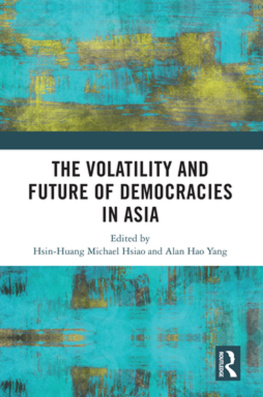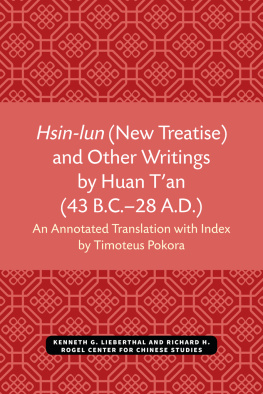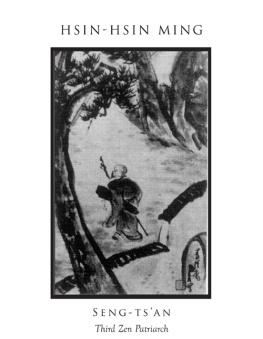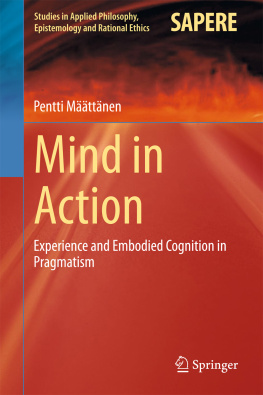Behind the Mind: The Short Discourses of Wu Hsin
Translation by Roy Melvyn
Behind the Mind: The Short Discourses of Wu Hsin
Translation by Roy Melvyn
Copyright 2012 Roy Melvyn
Summa Iru Publishing
Boulder. Colorado
License Notes
Thank you for downloading this eBook. You are welcome to share it with your friends. This book may be reproduced, copied and distributed for non-commercial purposes, provided the book remains in its complete original form.
Table of Contents
Brief Background
It is widely believed that Wu Hsin was born during the Warring States Period (403-221 BCE), postdating the death of Confucius by more than one hundred years.
This was a period during which the ruling house of Zhou had lost much of its authority and power, and there was increasing violence between states. This situation birthed the hundred schools, the flourishing of many schools of thought, each setting forth its own concepts of the prerequisites for a return to a state of harmony. The two most influential schools were that of Confucius and the followers of Mozi ("Master Mo"), the Mohists. The latter were critical of the elitist nature and extravagant behaviors of the traditional culture. The philosophical movement associated with the Daodejing also was emerging at this time. Wu Hsin's style of Daoist philosophy developed within the context defined by these three schools and appears to be most heavily influenced by that latter. In addition, it most clearly contains the seeds of what would become Chan Buddhism in China or Zen in Japan.
Wu Hsin was born in a village called Meng, in the state of Song. The Pu River in which Wu Hsin was said to have fished was in the state of Chen which had become a territory of Chu. We might say that Wu Hsin was situated in the borderlands between Chu and the central plainsthe plains centered around the Yellow River which were the home of the Shang and Zhou cultures. Certainly, as one learns more about the culture of Chu, one senses deep resonances with the aesthetic sensibility of the Daoists, and with Wu Hsin's style in particular.
If the traditional dating is reliable, Wu Hsin would have been a contemporary of Mencius, but one is hard pressed to find any evidence that there was any communication between them. The philosopher Gao Ming, although not a Daoist, was a close friend and stories abound of their philosophical rivalries.
Wu Hsins work was significant for Daoist religious practitioners who often took ideas and themes from it for their meditation practice, as an example, Sima Chengzhen's Treatise on Sitting and Forgetting (ca. 660 C.E.).
He offers a highly refined view of life and living. When he writes Nothing appears as it seems, he challenges the reader to question and verify every belief and every assumption.
Brevity was the trademark of his writing style. Whereas his contemporaries were writing lengthy tomes, Wu Hsins style reflected his sense that words, too, were impediments to the attainment of Understanding; that they were only pointers and nothing more. He would use many of the same words over and over because he felt that people needed to hear words repeatedly, until the Understanding was louder than the words.
His writings are filled with paradoxes, which cause the mind to slow down and, at times, to even stop. Reading Wu Hsin, one must ponder. However, it is not an active pondering, but a passive one, much in the same way as one puts something in the oven and lets it bake for a while.
He repeatedly returns to three key points. First, on the phenomenal plane, when one ceases to resist What-Is and becomes more in harmony with It, one attains a state of Ming, or clear seeing. Having arrived at this point, all action becomes wei wu wei, or action without action (non-forcing) and there is a working in harmony with What-Is to accomplish what is required.
Second, as the clear seeing deepens (what he refers to as the opening of the great gate), the understanding arises that there is no one doing anything and that there is only the One doing everything through the many and diverse objective phenomena which serve as Its instruments.
From this flows the third and last: the seemingly separate me is a misapprehension, created by the mind which divides everything into pseudo-subject (me) and object (the world outside of this me). This seeming two-ness (dva in Sanskrit, duo in Latin, dual in English), this feeling of being separate and apart, is the root cause of unhappiness.
The return to wholeness is nothing more than the end of this division. It is an apperception of the unity between the noumenal and the phenomenal in much the same way as there is a single unity between the sun and sunlight. Then, the pseudo-subject is finally seen as only another object while the true Subjectivity exists prior to the arising of both and is their source.
Translators Notes
As was customary of the time, a teachers discourses were usually transcribed by a disciple. The assignment of this task was rotated among disciples on a one-or-more lunar cycle basis without any consideration of the merit of the disciple. It may have been that the task was assigned to whomever Wu Hsin felt needed it the most. That is my speculation only.
When I compare the content of the transcriptions to Wu Hsins concepts presented in The Lost Writings, they appear to be quite consistent.
Material of this nature is not served well by language. It may seem that there are anomalies and contradictions. So, it is important to state that the translation of Wu Hsins words herein is not purely literal. Instead, it contains an interpretation of what was clearly implied, and this is where the limitation of words is quite evident.
Compounding this problem, I have chosen to incorporate certain words into the translation which may appear to be incongruent relative to the time of Wu Hsins writing.
The clearest example of this would be my use of the word ego which wasnt to come into being for many of hundreds of years after Wu Hsins death.
I have done this to best capture the real essence of the intention behind the word. The original Chinese wor d (ge ren ) means the individual. However, using the individual doesnt capture the sense of separateness that is better conveyed by ego.
The Sanskrit language also provides us w ith some marvelous insight. In it, the word for mind is manas, which translated literally means that which measures and compares. That says it pretty well. The Sanskrit word for ego is ahamkara; its translation is I am the doer. Within the context of Wu Hsins message, the conveyance of the idea of I am the doer is vitally important. As such, this and other small liberties that I have taken with the translation feel more than reasonable.
These pages should not be read with haste; a page or two at a time is sufficient to allow for the content to sink in, as a thrown stone falls to the bottom of the lake.
RM
Don't ask Wu Hsin to enter into your imagination.
The world is not in need of improvement.
Stated another way, the world is not the problem. All that's needed is to correct the perspective; not to manipulate, nor to prevent perceptions, thoughts or feelings, nor to avoid what is perceived or thought or felt in the world.
When we stand detached from thinking mind, perceiving senses, doing body, happy/unhappy person, we gain right view.
In that, all is well.
You have been trained since infancy to direct your attention to what is temporary. Had anyone before revealed the Permanent to you, there would be no need to sit with Wu Hsin.
Most people don't sit because they are afraid of what is revealed. The individuals fear that they will lose their individuality, their identity. One could say that the love of Being is not yet greater than the love of being somebody............... or it could be said that the fear of the not yet known is far greater than the distaste for the known.





